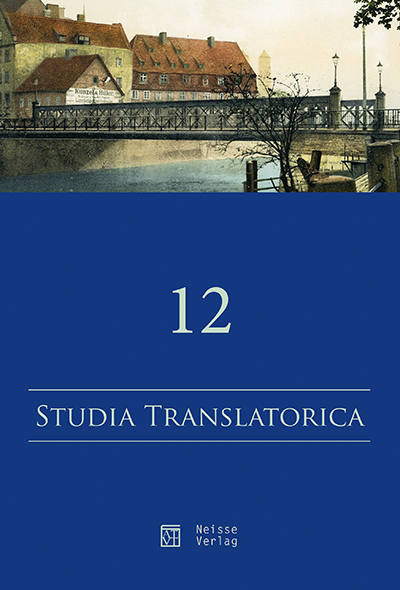A Cognitive Linguistic account of the translator’s sociocultural situatedness and its role in the translation of a medieval devotional text into Present-Day English
A Cognitive Linguistic account of the translator’s sociocultural situatedness and its role in the translation of a medieval devotional text into Present-Day English
Author(s): Katarzyna StadnikSubject(s): Translation Studies
Published by: Oficyna Wydawnicza ATUT – Wrocławskie Wydawnictwo Oświatowe
Keywords: Cognitive Linguistics; Julian of Norwich’s “Revelations of Divine Love”; the translator’s sociocultural situatedness; Translator Studies
Summary/Abstract: The Cultural Turn in Translation Studies sparked researchers’ interest not only in the translation as a cultural and sociological phenomenon, but also in the translator as an agent, rather than a figure who should fade into invisibility. Accordingly, the translator’s cognitive activity is seen as situated in their physical, social and cultural environment. The paper adopts a Cognitive Linguistic approach to the translator’s sociocultural situatedness, showing how it may bear on the translator’s linguistic choices. The paper concludes that to obtain a complete picture of the translator’s activity, it is necessary to illuminate and explore the interconnection of language, cognition and culture.
Journal: Studia Translatorica
- Issue Year: 2021
- Issue No: 12
- Page Range: 109-124
- Page Count: 16
- Language: English

